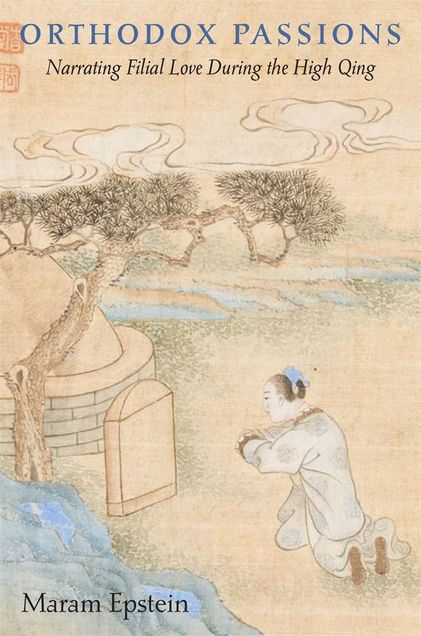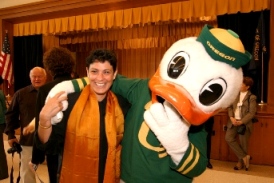Orthodox Passions: Rewriting the History of Emotions in Late-Imperial China (Tuesday, Nov. 17, 2020)
Boston University World Languages & Literatures Lecture Series
New Books in East Asian Literature
Annual Theme for 2020-2021: Kinship, Sexuality, and Emotions
Orthodox Passions: Rewriting the History of Emotions in Late-Imperial China
Professor Maram Epstein
Professor of Chinese Literature, and Director,
Center for Asian Pacific Studies, University of Oregon
Tuesday, November 17, from 4:00 pm to 5:30 pm (EST) via Zoom
Please register by clicking this link:
https://bostonu.zoom.us/meeting/register/tJUrde2prjIvG9wBkSQnhbJ0wwnicUB0PiZv
 The basic goal of Orthodox Passions: Narrating Filial Love during the High Qing (Harvard University East Asian Series, 2019) is to decenter romantic love as the normative translation
The basic goal of Orthodox Passions: Narrating Filial Love during the High Qing (Harvard University East Asian Series, 2019) is to decenter romantic love as the normative translation
of qing 情 in histories of Chinese emotion. By drawing on a wide range of sources that go beyond the usual cult of qing canon, I seek to challenge the May Fourth paradigm that continues to frame filial piety as a repressive ritual obligation that undergirded the despotic system of government and social order in imperial China. May Fourth attempts to produce an enlightenment modernity created the useful fiction of a monolithic feudal tradition that needed to be discarded, and filial piety was just one of the many traditional values that was declared to have no place in the modern. This view has been so dominant that for most of the twentieth and twenty-first centuries late-imperial formations of filial piety have received little critical attention. Orthodox Passions reframes the current understanding of filial piety by arguing that it should be understood not as an externally imposed set of ritual practices but as a deeply interiorized emotion that functioned similarly to love in the European west in articulating a self with affective and ethical agency. In addition to giving an overview of the book and its interdisciplinary methodology, I will discuss its implications for analyzing the embrace of the modern concept of “love” 愛 in China’s early 20th century.
About the speaker:
Research
 Prof. Epstein’s research has been focused on reading Ming-Qing novels within their specific cultural and aesthetic contexts. Although my approach to late-imperial fiction is grounded in the intellectual and cultural context of the period and refers to traditional commentaries for immediate “reader response,” the questions I ask are largely informed by recent critical concerns, particularly in the area of gender theory. My first book, Competing Discourses, analyzes the shifting fictional representations of gender and sexual desire from within the context of the neo-Confucian discourse of self-cultivation and the late-Ming cult of qing (sentiment). She argues that a poetics of gender based on yin yang numerology is an essential structural element in many Ming-Qing novels.
Prof. Epstein’s research has been focused on reading Ming-Qing novels within their specific cultural and aesthetic contexts. Although my approach to late-imperial fiction is grounded in the intellectual and cultural context of the period and refers to traditional commentaries for immediate “reader response,” the questions I ask are largely informed by recent critical concerns, particularly in the area of gender theory. My first book, Competing Discourses, analyzes the shifting fictional representations of gender and sexual desire from within the context of the neo-Confucian discourse of self-cultivation and the late-Ming cult of qing (sentiment). She argues that a poetics of gender based on yin yang numerology is an essential structural element in many Ming-Qing novels.
Prof. Epstein is now pursuing several linked projects concerning ritual, expression of emotions, the body, and representation of self. She spent eight months in the Number One Historical Archives in Beijing collecting legal records of domestic violence. She is also looking at the various representations of filial piety in legal records, fiction, and autobiographical writings. As in her earlier work, her goal is to uncover how the self is represented in different discourses and to tease out the implications of various narrative cliches that continue to shape the cultural imaginary of contemporary China.
Publications
Competing Discourses: Orthodoxy, Authenticity, and Engendered Meanings in Late-Imperial Chinese Fiction. 2001, Harvard University East Asian Series.
“Inscribing the Essentials: Culture and the Body in Ming-Qing Fiction.” Ming Studies 41 (1999): 6-36.
“Reflections of Desire: The Poetics of Gender in Dream of the Red Chamber.” Nan nu 1.1 (1999): 64-106.
“Engendering Order: Structure, Gender, and Meaning in the Qing Novel Jinghua yuan.” Chinese Literature: Essays, Articles, and Reviews 18 (December 1996): 105-131.
from: https://eall.uoregon.edu/profile/maram/
Sponsored by the BU Center for the Humanities, Department of World Languages & Literatures, and BU Center for the Study of Asia
For more information about this event, please visit
http://www.bu.edu/wll/2020/10/21/wll-lecture-series-new-books-in-east-asian-literature-11-17/